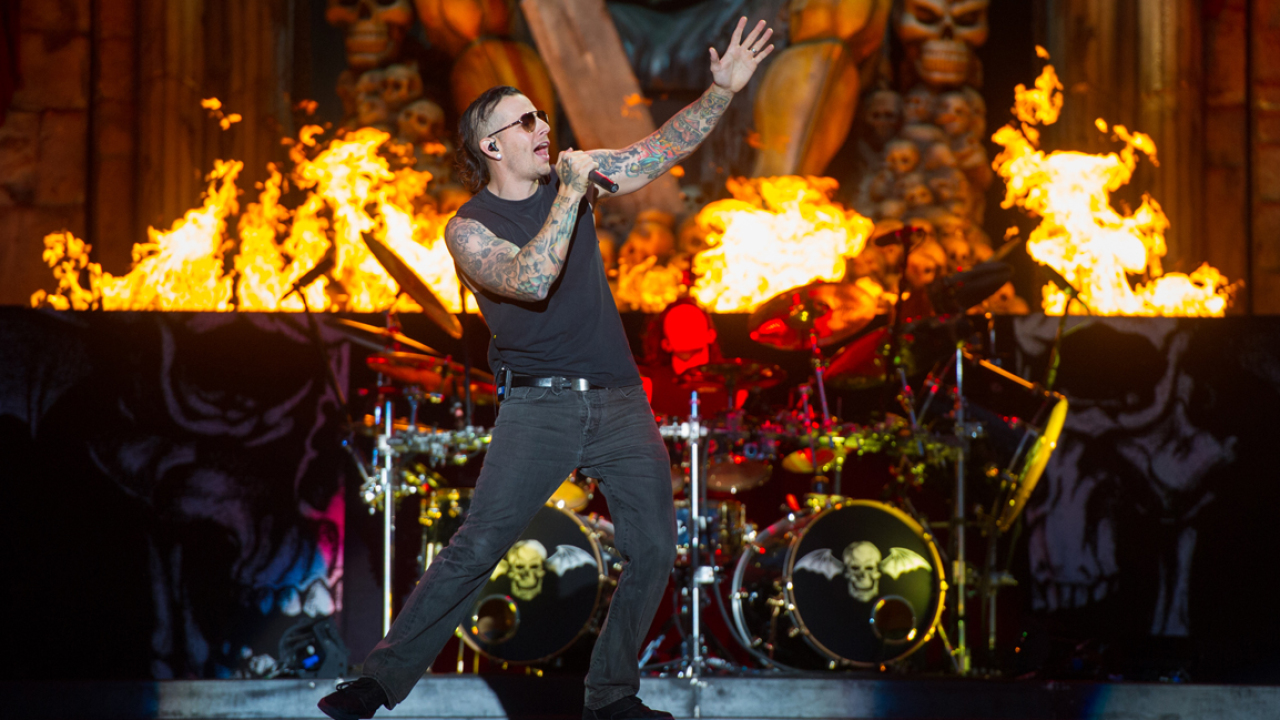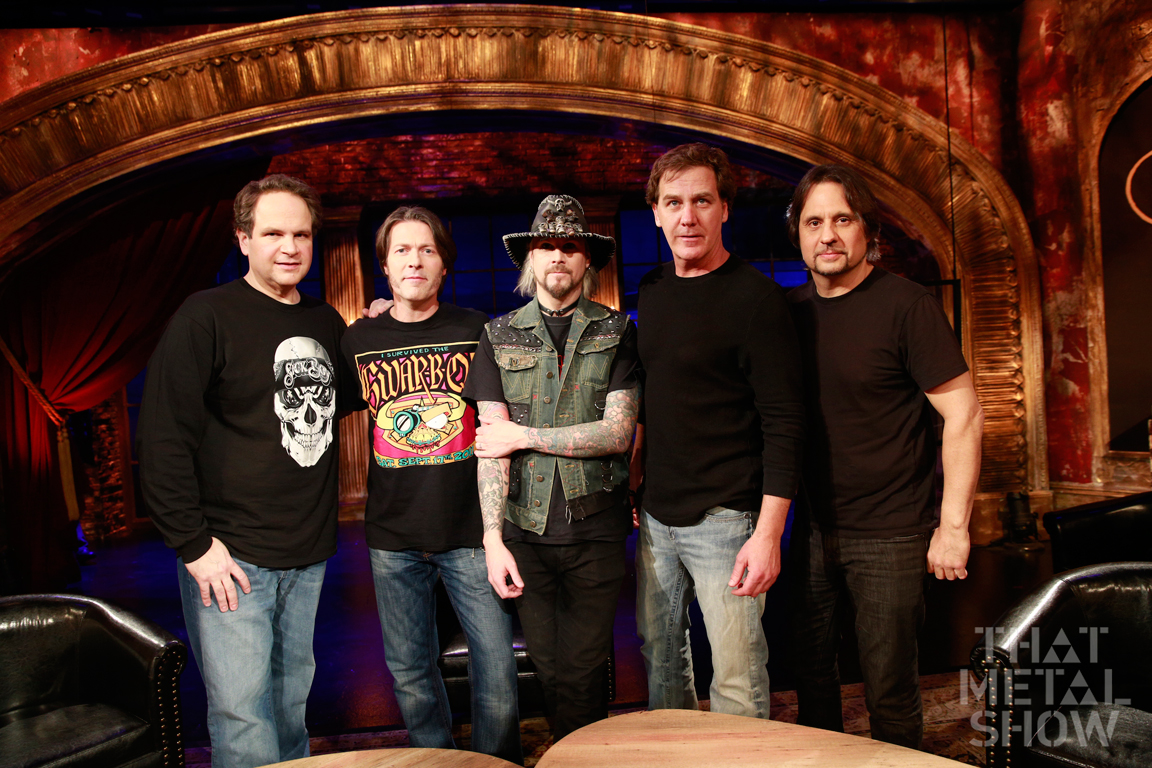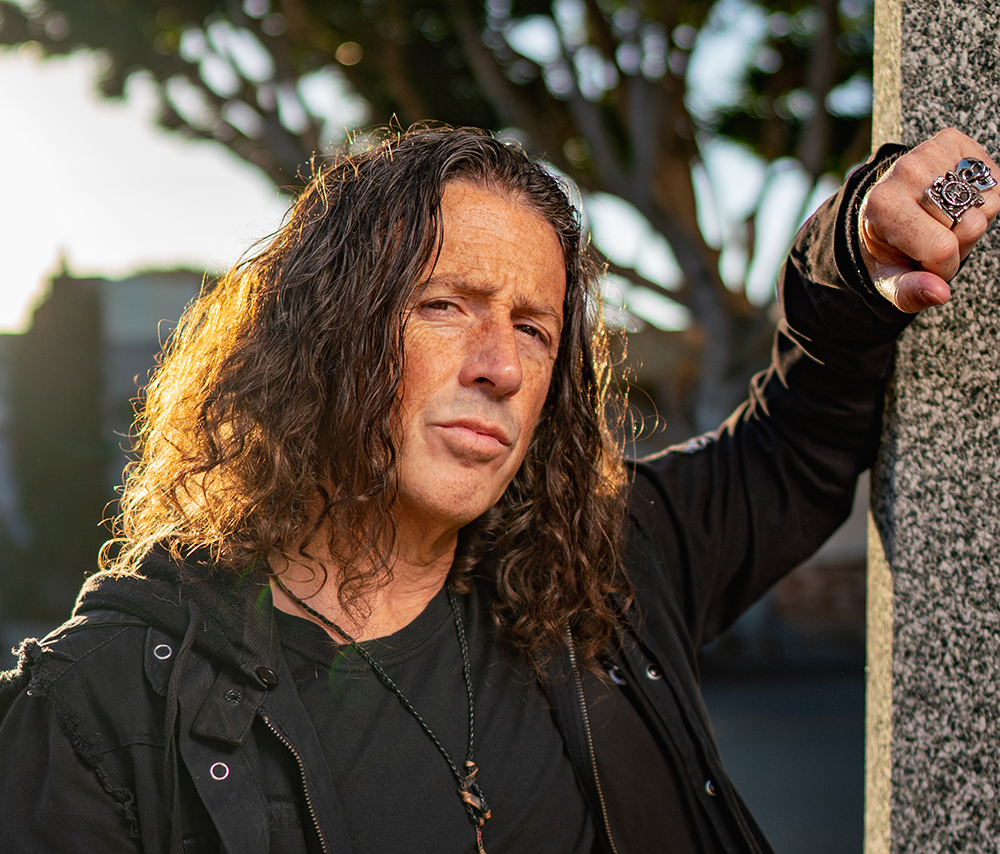That Metal Show's Eddie Trunk on the past and future of metal
Who are the next flag-bearers for heavy metal?

US metal fans reeling from this winter’s Arctic hammering were revitalised by the February debut of That Metal Show — television’s heaviest talk show, now in its fourteenth season. Hosted by Eddie Trunk along with Jim Florentine, Don Jamieson and Miss Box Of Junk, Jennifer Gottlieb, the new season has already featured interviews with Geddy Lee, Motörhead, Anthrax and Dave Lombardo, along with guest guitarist appearances from Alex Skolnick, John Petrucci and John 5.

Although metal continues to patrol the fringes of mainstream, no other music genre currently boasts a TV institution with the longevity or intensely-loyal following of TMS and yet, the formula could not be simpler — three metalheads sit around and talk about metal, make lists and interview some of the biggest names in the genre, including current and former members of Sabbath, Metallica, Maiden, Judas Priest, Kiss and Pantera.
While the UK waits for That Metal Show to cross the pond, we caught up with Eddie to discuss what makes a metal legend, how lineup changes affect bands and what artists will emerge as the next generation’s heavy metal icons.
We’re entering a period now where a lot of our legends – like Malcolm Young – are reaching an age when they simply can’t carry on any further. Before discussing the next generation of legends, let’s talk about the defining characteristics of a truly iconic metal band.
“As far as I’m concerned, the first thing that grabs you about an all-time great metal band is the riffs, and of course, the all-time riff king is Tony Iommi. Secondly, great bands convey a sense of power and aggression, particularly the guitars. Third – and this is probably counter to what some people feel – I need vocals and melody. I know there are a lot of different styles of metal out there and there’s a large number of fans who love the more extreme styles, like death metal. That’s not for me, that’s just my personal taste. A song must have some sort of singing and some level of melody in the vocal for me to like it. I’m not saying that everybody’s gotta sound like Freddie Mercury or Geoff Tate or Dio, but there has to be some melody.”
How important are lyrics in metal?
“I think it’s nice when there are lyrics with some thought behind them, but in all honesty, I don’t think that it’s a make-or-break proposition when it comes to hard rock and metal bands. I think that a lot of it is about the energy, the aggression and embracing metal as a way to blow off some steam and escape the problems of the world or what you’re dealing with that week.”
Sign up below to get the latest from Metal Hammer, plus exclusive special offers, direct to your inbox!
Do you think that it’s gutsy or lazy when a classic band modifies their sound to keep up with prevailing trends?
“A lot of the bands who have tried to do that have pretty much failed. Def Leppard comes to mind. They made Slang in the mid-90s, where they got away from being Def Leppard and tried to get more into the sounds of the mid-90s and it failed. Fans didn’t like it because it wasn’t what they wanted from Def Leppard. I like when artists stay true to what they are but also try different things throughout their career that build on what they’ve already done, rather than chase a new sound that’s become popular.”
Leppard come to mind as one of those bands that came up short on their overhaul, but conversely, Anthrax’s The Sound Of White Noise might be one of the better examples of a band modernising their sound without appearing cheap or abandoning their roots.
“Without a doubt, that’s a great example of a record where the band stayed within their wheelhouse. They didn’t get too far out there. If I’m not mistaken, Dave Jerden produced that record and he had done stuff with bands like Alice In Chains and Jane’s Addiction, so there are definitely different sounds on there and it is a great record, but mainly because it encompasses a lot of the classic Anthrax elements, like the speed and the aggression. Although the counter to all that is that they were also one of the first bands to introduce rap into metal. As a fan, that was a little bit too far out of reach. The Sound Of White Noise was great but I’m not a rap fan. I’m a fan of metal. I know that some people will say that I should have an open mind, and I do, but I like what I like, and I like singing and not rapping.”
To what extent, if at all, do significant lineup changes dilute a band’s legacy?
“I think it’s a case-by-case. Look at AC/DC – with the arrival of Brian Johnson, they actually got even bigger. That band is as big as any band in the world and they don’t have their original lead singer. To some degree, I think Van Halen with Sammy Hagar were able to pull it off. Actually, not to some degree – they truly did. Van Halen with Sammy, whether you like that lineup or not, was enormously successful. For a younger audience, that’s their generation of Van Halen. I think about this a lot – the band completely ignores that era of their history because of the falling-out with Hagar. I can’t think of another band that has a catalogue of music that includes maybe five or six records with legitimately ten or twelve hit songs that will never be performed or heard again. Songs that have completely been ignored! They’re on the shelf and there’s no way they’ll ever be played again unless Hagar goes back to Van Halen, because there’s no way David Lee Roth can sing that stuff. I just read that the Roth records are going to be re-mastered – again – but to this day, they still haven’t (re-mastered) the Hagar catalogue. Listen, it doesn’t hurt Van Halen because they’re huge and the stuff with Roth was great, but what other band could afford to leave that many hits on the shelf?”
Please pull out your crystal ball for the final question. We know the Ice Age is coming when a lot of legendary acts won’t be around anymore. Looking around at who’s playing now, who are going to be metal’s living legends in 2025?
“Ten years from now, some of the bigger bands from the ‘80s should still be able to do it. So I’d think that puts Metallica at around age 60, so they should still be able to hold that throne if they do things smart and take care of themselves. In the newer school of bands, you have to hope that a band like Avenged Sevenfold or a band like Slipknot – bands who have laid down some pretty deep roots by now and already are huge – can continue to grow, continue to evolve and continue to come up with original stuff and carry metal forward into the next era. Five Finger Death Punch are huge. You hope that these bands that are younger and newer can carry the flag, not implode and keep writing at a high quality. They need to continue to find their own voice as well. They all show their influences very proudly – some would say that some do a little too much ha ha – but I think that’s fine at this point in their careers because they’re still relatively young. I was very encouraged when I saw Avenged a year ago. You can say what you want about how original the last record was, but to me it was encouraging to see all these really young kids in the audience, wearing concert t-shirts and fully-engaged in a guitar-based, heavy rock band. You’re right though — some of these guys currently carrying the flag should have stopped ten years ago and they’re still going, unfortunately hurting their legacy. But I’ve never been more encouraged by new music than I have been recently. I really love Kyng, I love Rival Sons and I really like Monster Truck. Big, loud, guitar-based stuff with great vocals. I hope this continues to evolve and that we see more of these guys in the years to come. And one more thing – I just saw Alice Cooper a couple weeks ago, and something tells me that we’ll still be seeing Alice in 2025!”
In the new issue of Metal Hammer magazine we’re talking about the bands leading the New Metal Revolution. Read all about it here.
Hailing from San Diego, California, Joe Daly is an award-winning music journalist with over thirty years experience. Since 2010, Joe has been a regular contributor for Metal Hammer, penning cover features, news stories, album reviews and other content. Joe also writes for Classic Rock, Bass Player, Men’s Health and Outburn magazines. He has served as Music Editor for several online outlets and he has been a contributor for SPIN, the BBC and a frequent guest on several podcasts. When he’s not serenading his neighbours with black metal, Joe enjoys playing hockey, beating on his bass and fawning over his dogs.

